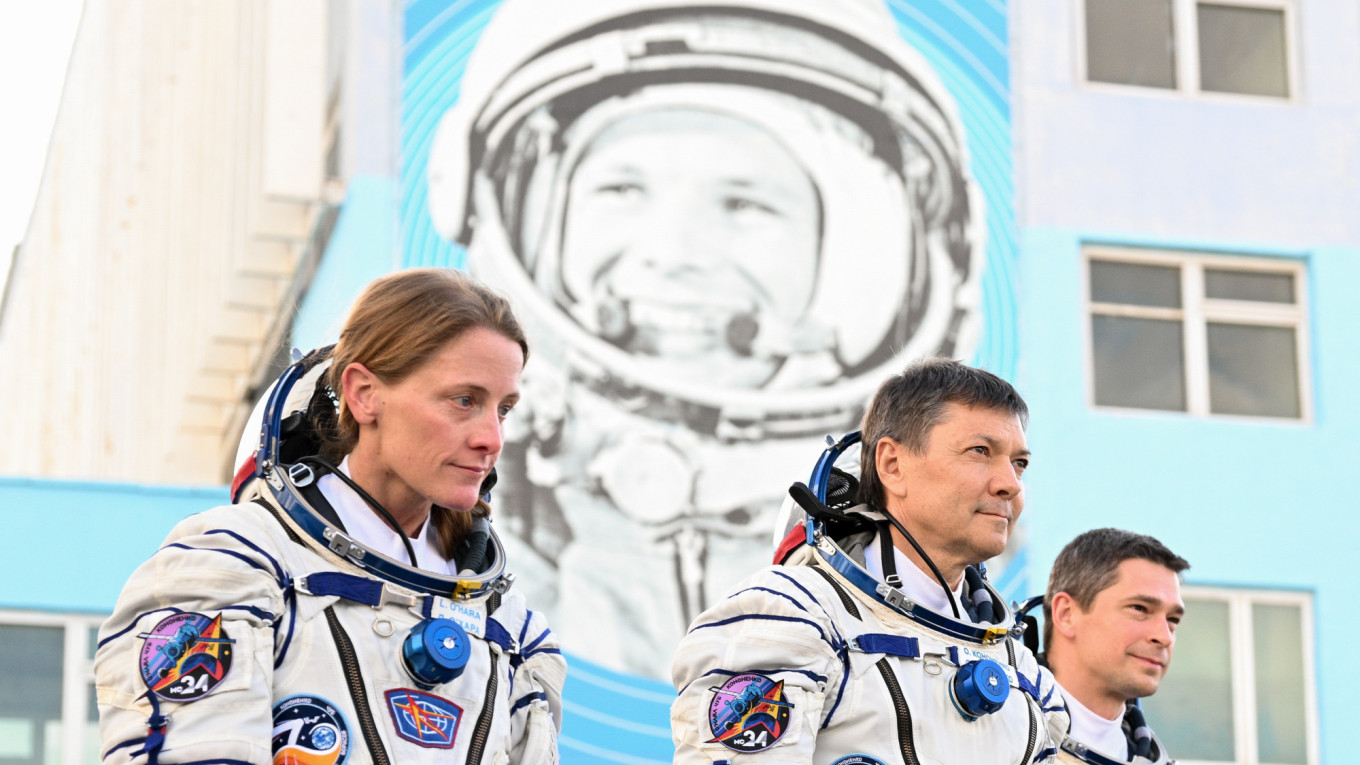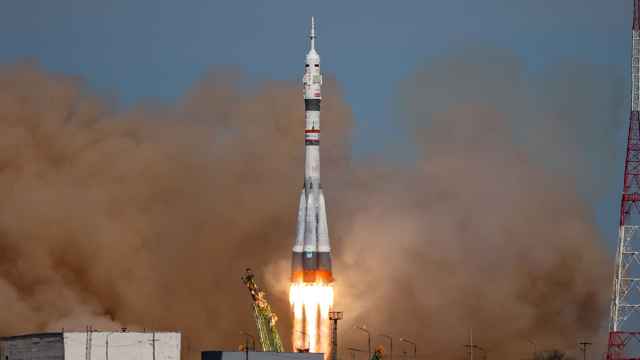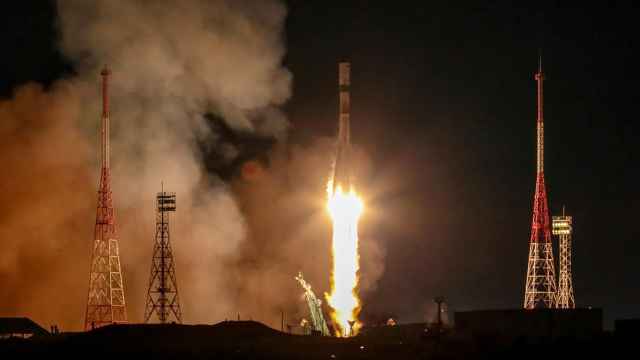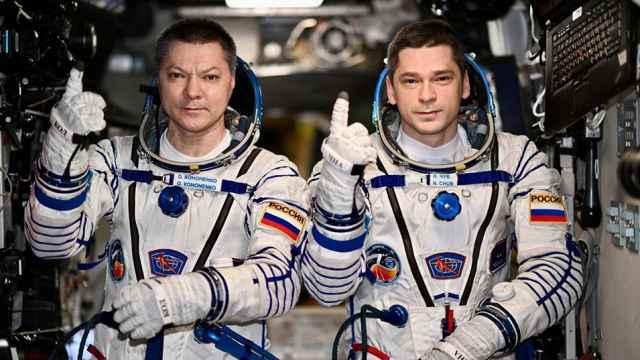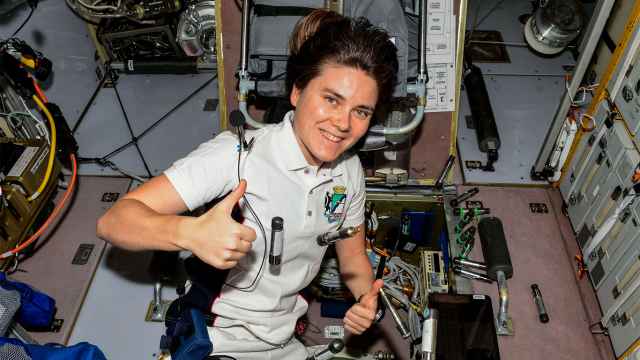Two Russian cosmonauts and an American astronaut docked with the International Space Station on Friday after blasting off amid raging tensions between Moscow and Washington over Ukraine.
Earlier Friday Roscosmos cosmonauts Oleg Kononenko and Nikolai Chub and NASA astronaut Loral O'Hara lifted off from the Baikonur cosmodrome in Kazakhstan aboard the Soyuz MS-24 spacecraft.
The crew docked at the ISS three hours later, the Russian space agency said.
At the orbiting station, the trio will join three Russians, two Americans, a Japanese astronaut and a representative of the European Space Agency.
The liftoff took place after Russia's first lunar mission in nearly 50 years failed last month.
The ISS is a rare venue for cooperation between the United States and Russia, whose ties broke down after Moscow unleashed its offensive in Ukraine last year.
Kononenko alluded to the tensions during a pre-flight press conference on Thursday, saying that "unlike on earth" cosmonauts and astronauts took care of each other in space.
"We hear each other there, and we understand each other, and we are very sensitive to our relationships," he said. "We always take care of each other."
'ISS legacy'
O'Hara praised the station's "legacy" and said it had been bringing the countries together.
"I'm excited to get on board and see the crewmates who are waiting for us," she added.
Kononenko, 59, and Chub, 39, were scheduled to spend a year on the ISS, while O'Hara, 40, was to spend six months aboard. It was the first mission to space for both O'Hara and Chub.
Chub said that traveling to space was his "childhood dream" and he had dedicated "all his life" to reaching that goal.
The three take over from Russians Dmitry Petelin and Sergey Prokopyev, as well as NASA astronaut Frank Rubio, who have spent one year aboard the ISS.
While that trio was initially supposed to return in March, their mission had to be extended after their vessel, the Soyuz MS-22, suffered a coolant leak following damage from a suspected tiny meteoroid.
They will now return to Earth on the MS-23, according to Roscosmos.
Russian President Vladimir Putin is looking to strengthen space cooperation with China as Western condemnation and sanctions over Moscow's offensive in Ukraine intensify.
On Wednesday, Putin hosted the reclusive leader of North Korea, Kim Jong Un, at the new Vostochny spaceport in Russia's Far East region, and the two discussed the possibility of sending a North Korean into space.
Last month, Russia's Luna-25 module crashed on the Moon's surface after an incident during pre-landing maneuvers, in a huge embarrassment for Moscow.
The mission was meant to mark Russia's return to independent lunar exploration in the face of financial troubles and corruption scandals, and its growing isolation from the West.
Moscow last landed a probe on the Moon in 1976, before shifting away from lunar exploration in favor of missions to Venus and building the Mir space station.
A Message from The Moscow Times:
Dear readers,
We are facing unprecedented challenges. Russia's Prosecutor General's Office has designated The Moscow Times as an "undesirable" organization, criminalizing our work and putting our staff at risk of prosecution. This follows our earlier unjust labeling as a "foreign agent."
These actions are direct attempts to silence independent journalism in Russia. The authorities claim our work "discredits the decisions of the Russian leadership." We see things differently: we strive to provide accurate, unbiased reporting on Russia.
We, the journalists of The Moscow Times, refuse to be silenced. But to continue our work, we need your help.
Your support, no matter how small, makes a world of difference. If you can, please support us monthly starting from just $2. It's quick to set up, and every contribution makes a significant impact.
By supporting The Moscow Times, you're defending open, independent journalism in the face of repression. Thank you for standing with us.
Remind me later.


